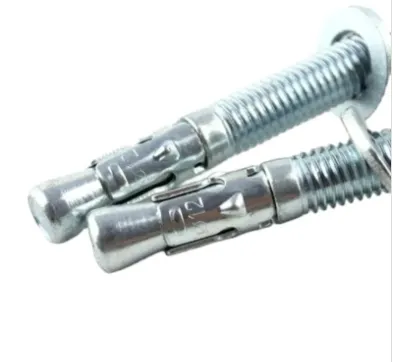Lis . 07, 2024 18:28 Back to list
M4 Hex Nut Specifications and Applications for Various Mechanical Projects
Understanding M4 Hex Nuts Design, Usage, and Applications
The M4 hex nut is a fundamental component in the world of fasteners. As a part of the metric system, the “M” denotes its metric thread, while “4” signifies the nominal diameter of the nut—in this case, 4 millimeters. Hex nuts are widely known for their hexagonal shape, which provides a secure grip and facilitates the ease of tightening. This article will delve into the design, material choices, applications, and advantages of M4 hex nuts, ensuring a comprehensive understanding of their significance in various industries.
Design Features
M4 hex nuts feature a simple yet effective design. The hexagonal form enables the use of standard tools, such as wrenches and sockets, allowing for efficient tightening and loosening. Each side of the hex nut is usually between 6 mm to 7 mm long, which offers an optimal grip for a wrench. The internal threading accommodates M4 bolts, ensuring a snug fit. These nuts are also designed to resist stripping and provide durability under various conditions, making them reliable for countless applications.
Material Choices
M4 hex nuts are manufactured using a variety of materials, depending on their intended application. Common materials include
1. Carbon Steel Often coated with zinc or other plating to prevent rust, carbon steel hex nuts are a cost-effective solution for most projects. 2. Stainless Steel Known for its corrosion resistance, stainless steel is ideal for outdoor or marine applications.
3. Brass Used in electrical applications due to its conductivity and resistance to corrosion.
4. Plastic Lightweight and non-corrosive, plastic hex nuts are used in applications where metal contamination is unacceptable.
Selecting the right material is crucial for ensuring the longevity and performance of M4 hex nuts in specific environments.
Applications
M4 hex nuts find applicability across multiple sectors due to their versatility. Common uses include
m4 hex nut

- Automotive Industry M4 hex nuts secure various components within vehicles, from engines to interiors. - Electronics Used to assemble delicate electronic devices, these nuts help maintain structural integrity without adding excessive weight.
- Furniture Assembly Many flat-pack furniture items utilize M4 hex nuts in their assembly process, providing strength and stability.
- Construction In construction, M4 hex nuts secure frames, fixtures, and various structural elements, playing a vital role in the overall safety of buildings.
Advantages of M4 Hex Nuts
The advantages of using M4 hex nuts are clear
1. Ease of Use Their simple design allows for quick installation and removal, making them user-friendly, even for those with minimal technical knowledge.
2. Versatility M4 hex nuts can be used in various settings, from manufacturing to DIY projects, proving their adaptability.
3. Cost-Effective Compared to other fastening solutions, hex nuts are relatively inexpensive, helping to keep project costs manageable.
4. Reliability When properly installed, M4 hex nuts provide a secure connection that can withstand significant forces, reducing the likelihood of loosening due to vibration.
Conclusion
M4 hex nuts play a crucial role in ensuring the stability and safety of many structures and devices. Their convenient design, coupled with a range of material options, makes them an essential component across diverse industries. Understanding the specifications, advantages, and applications of M4 hex nuts empowers professionals and DIY enthusiasts alike to make informed decisions when selecting fasteners for their projects. Whether you're assembling electronics, constructing furniture, or working in the automotive industry, these nuts are an indispensable part of the toolkit.
-
Threaded Rods in Art Where Structural Integrity Meets Aesthetic Vision
NewsApr.11,2025
-
Optimize Industrial Fastening with Precision-Crafted Hex Nut Solutions
NewsApr.11,2025
-
Master Fastening with Premium Stainless Steel Carriage Bolts
NewsApr.11,2025
-
Hex Sleeve Anchors: Smart Choice for Industrial-Grade Concrete Fastening
NewsApr.11,2025
-
Hex Head Timber Screws: Reinventing Safety in Modern Livestock Enclosures
NewsApr.11,2025
-
Elevate Efficiency with Robust Beam Clamps
NewsApr.11,2025


